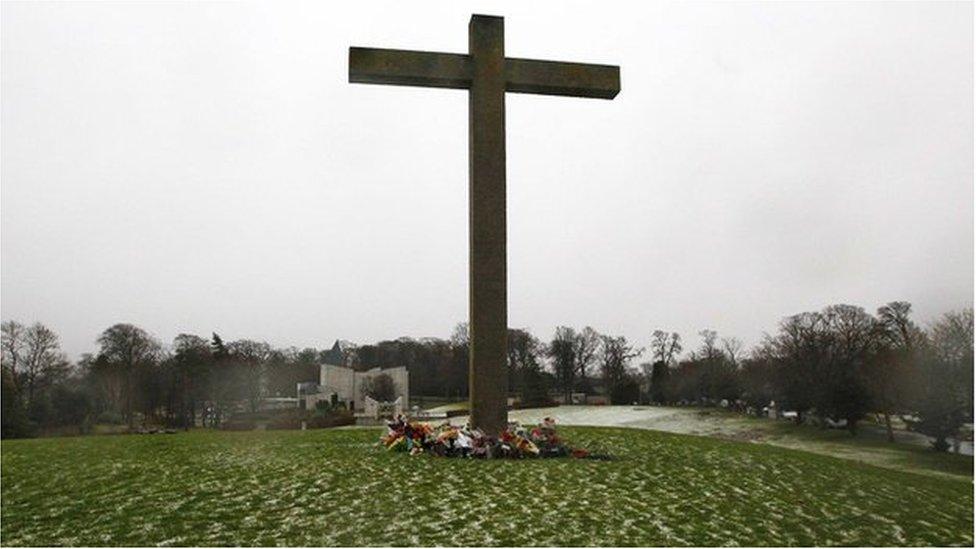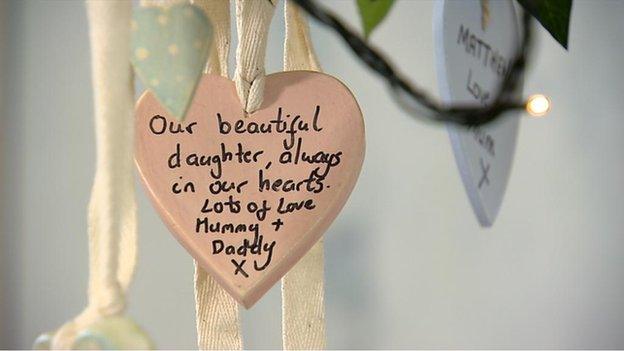Baby ashes scandal 'will not happen again'
- Published

More than 250 families were affected by the baby ashes scandal at Mortonhall
New legislation on cremations will ensure that Scotland's baby ashes scandal will never be repeated, the public health minister has said.
Maureen Watt made the pledge as MSPs unanimously backed the general principles of the Burial and Cremation (Scotland) Bill on Thursday.
The bill was brought forward in response to the scandal at the Mortonhall crematorium in Edinburgh.
Staff at the crematorium had secretly buried the ashes of babies for decades.
The parents of the infants had been told there were no ashes left when young babies were cremated.
Concerns were later raised about other crematoriums across Scotland.
The new legislation follows on from the recommendations of Lord Bonomy's Infant Cremation Commission.
Ms Watt set out plans to bring forward a series of amendments in response to calls from Holyrood's Health and Sport Committee to strengthen its provisions.
Committee convener Duncan McNeil said MSPs had heard moving evidence of the "long-lasting and devastating" impact of the ashes scandal.
He said: "The bereaved parents who shared their views with the committee sent a very clear message - this bill must ensure that the poor practice of the past should never happen again."
Ms Watt said the bill would make "valuable and much needed" improvements to burial and cremation laws which were more than 100-years-old.

An inquiry into the scandal found a series of failings
She said there were a number of problems with the current system, including an overly-complicated process that can be "difficult to understand at the best of times, let alone when dealing with the loss of a loved one."
Ms Watt added: "There can also be a lack of clear information given to the person who is making the funeral arrangements.
"Lord Bonomy's Infant Cremation Commission identified all too clearly the potential impact of these problems.
"The steps taken in this bill will help ensure that such failings can never occur again."
The minister confirmed amendments to ensure that women experiencing a pregnancy loss were put at the centre of decision-making over any remains, to improve the process following a post 24-week termination and to strengthen what crematoriums and funeral director could do with ashes.
'Licensing scheme'
Labour MSP Jenny Marra said: "What happened with infant ashes in Scotland should never be allowed to happen again and we must ensure that women are at the centre of decisions at a very, very difficult time."
Conservative MSP Nanette Milne added: "The bill goes some way towards ensuring that past bad practice will not recur although I think it will need to be refined as it goes through the next stages of the parliamentary process."
Holyrood's Local Government and Regeneration Committee, which looked at aspects of the bill relating to burials, complained that it "lacks ambition" and called for the introduction of licensing for funeral directors.
Ms Watt said: "At the moment there is not enough evidence about the industry as a whole to say with certainty that licensing is required or what form a licensing scheme would take."
She said the inspectors appointed under the bill would review the industry and make recommendations about the need for licensing.